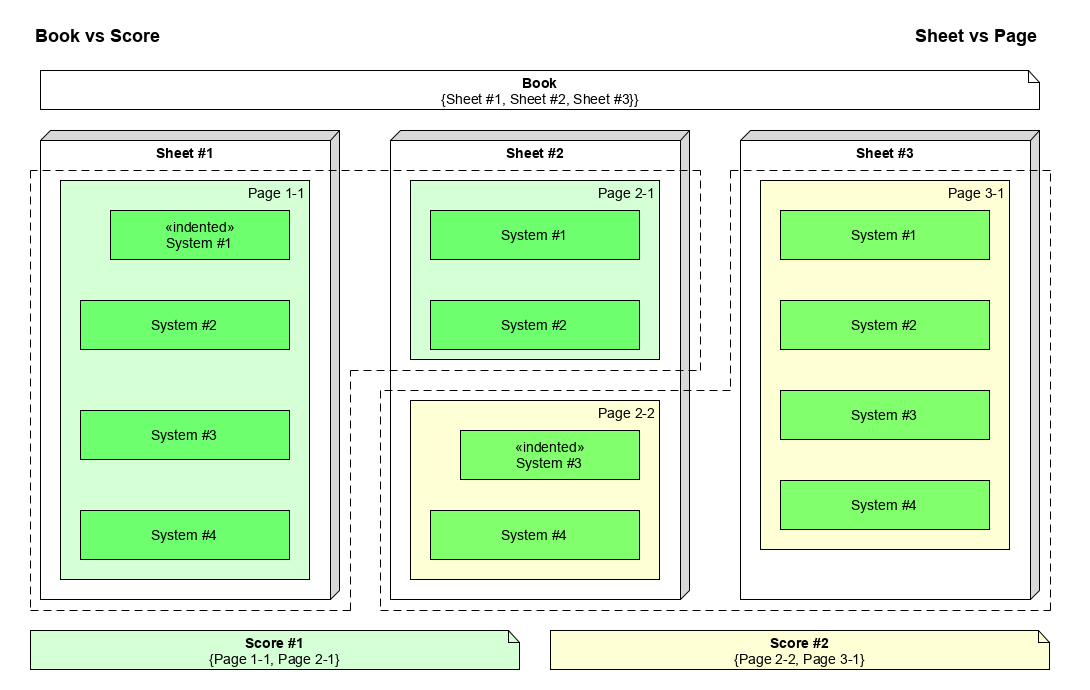Score of Pages
Looking at the musical content of a given sheet image, we can observe that staves are often gathered into systems (in which staves are played in sync), and that a given sheet image generally contains several systems (played one after the other).
A system may be left-indented with respect to the other systems in the image, to indicate the beginning of a movement. A non-indented system is assumed to belong to the same movement as the previous system (located just above in the current sheet or at the end of the previous sheet).
In Audiveris, this logical containment is modeled as one instance of Score per movement (since “Score” is the word used by MusicXML), the score containing a sequence of one or several Page instances.
Example
To make these concepts more concrete, let’s look at the following diagram of a hypothetical book: 
In this diagram, we can see a book containing 3 sheets (certainly because the input PDF or TIFF file contained 3 images):
Sheet#1 begins with an indented system, which indicates the start of a movement (Scorein MusicXML parlance). There is no other indented system, so thisSheetcontains a singlePage.Sheet#2 exhibits an indentation for its system #3. This indented system ends the previous score and starts a new one. We have thus 2Pageinstances in thisSheet.Sheet#3 has no indented system and is thus composed of a singlePage.
To summarize, in this book we have 2 scores that span over 3 sheets:
Score#1 is composed of:- Single
Page#1 fromSheet#1, followed by Page#1 fromSheet#2
- Single
Score#2 is composed of:Page#2 fromSheet#2, followed by- Single
Page#1 fromSheet#3
Rules
In the vast majority of cases, there is exactly one page per sheet.
The exceptions are as follows:
- When an indented system appears anywhere in a sheet, it indicates the beginning of a new movement/score.
This sheet, as in the picture above, then contains two pages or more, if the indented system is not the first one in the sheet. - When a sheet is invalid (i.e. containing no music), it contains no page.
Moreover, an invalid sheet is considered as a score break:- It ends the last score in the previous valid sheet, if any.
- The next valid sheet, if any, will start another score, even if it does not start with an indented system.